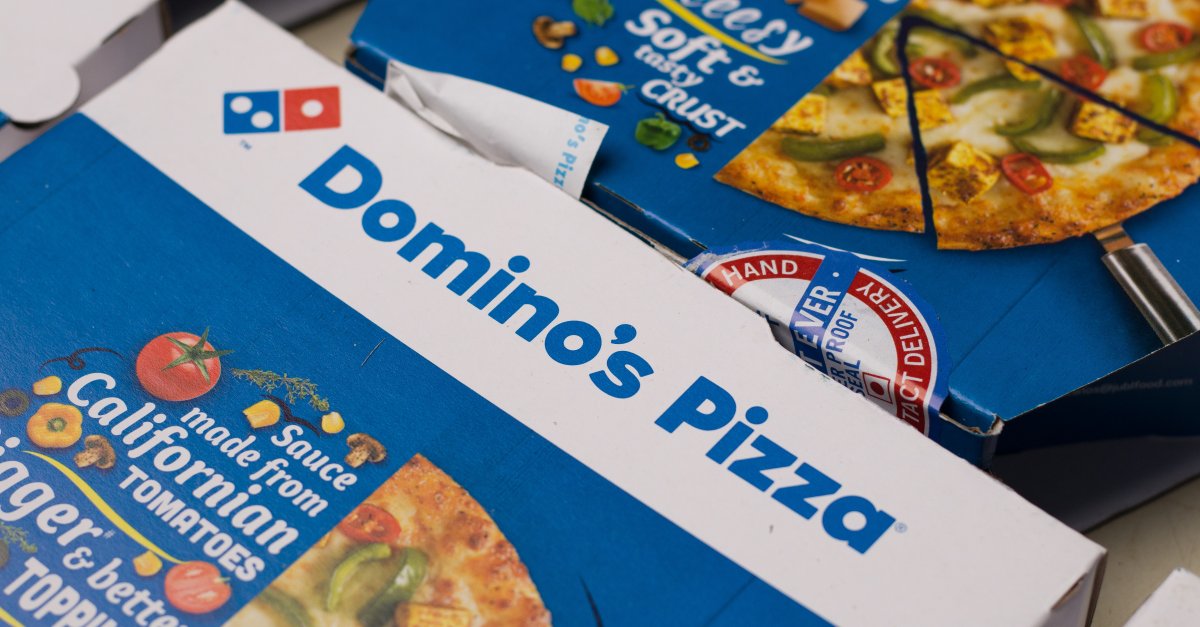Jubilant FoodWorks (NSE:JUBLFOOD), India’s largest foodservice provider, announced on Friday that an upcoming meeting of the company’s directors will deliberate on a new share split in the company.
Jubilant told the exchanges that its board of directors will meet on February 2 to review the company’s quarterly results and to consider a “proposal to change the capital of the company by subdividing/splitting the existing shares of the company having a value nominal of INR10 each, fully paid”.
The Uttar Pradesh-based company holds master franchise rights for Domino’s Pizza in India, Bangladesh, Sri Lanka and Nepal. It also holds the exclusive rights to operate Dunkin’ Donuts restaurants in the subcontinent, where it sells eggless donuts, in addition to holding the exclusive rights to operate Popeyes restaurants in India, Bangladesh, Nepal and in Bhutan.
The restaurateur has a market capitalization of around INR 516.8 billion ($6.97 billion) on the National Stock Exchange (NSE), where its shares have risen 43% over the past year to INR 3,923.
The analyst’s point of view
Jubilant FoodWorks is “progressing well in its transition to a multi-brand quick-service restaurant (QSR),” analysts at national brokerage Kotak Securities wrote in a Dec. 27 note to clients.
“We expect (the company) to accelerate the ramp-up of Popeyes & Hong’s Kitchen beginning in FY23E…We model the structural improvement in Domino’s revenue flow, associated operating leverage and store adds slightly higher,” they said, and also filed an ‘add’ recommendation for the company’s shares with a target price of INR 4,200.
The food and drink retailer rolled out its first local brand – Hong’s Kitchen – in the Chinese cuisine segment. He has also added Indian dishes like biryanis, kebabs and breads to his portfolio via the new Ekdum! Brand. The company also markets a range of ready-to-cook sauces under the “ChefBoss” brand.
The founders controlled 41.94% of the business in the quarter through September 2021.
Read more: WIPRO Reports Steady Earnings Growth in Seasonally Weak Quarter
The difference between trading assets and CFDs
The main difference between trading CFDs and trading assets, such as commodities and stocks, is that you do not own the underlying asset when trading a CFD.
You can always profit if the market moves in your favor or suffer a loss if it moves against you. However, with traditional trading, you enter into a contract to exchange legal ownership of individual stocks or commodities for cash, and you own them until you sell them again.
CFDs are leveraged products, which means that you only have to deposit a percentage of the total value of the CFD transaction to open a position. But with traditional trading, you buy the assets for the full amount. In the UK there is no stamp duty on CFD trading, but there is when you buy shares, for example.
CFDs attract overnight costs to hold trades (unless you are using 1-1 leverage), which makes them more suitable for short-term trading opportunities. Stocks and commodities are more normally bought and held longer. You might also pay a commission or brokerage fee when buying and selling assets directly and you would need a place to store them securely.
Capital Com is an execution-only service provider. The material provided on this website is provided for informational purposes only and should not be construed as investment advice. Any opinion that may be provided on this page does not constitute a recommendation by Capital Com or its agents. We make no representations or warranties as to the accuracy or completeness of the information provided on this page. If you rely on any information on this page, you do so entirely at your own risk.

